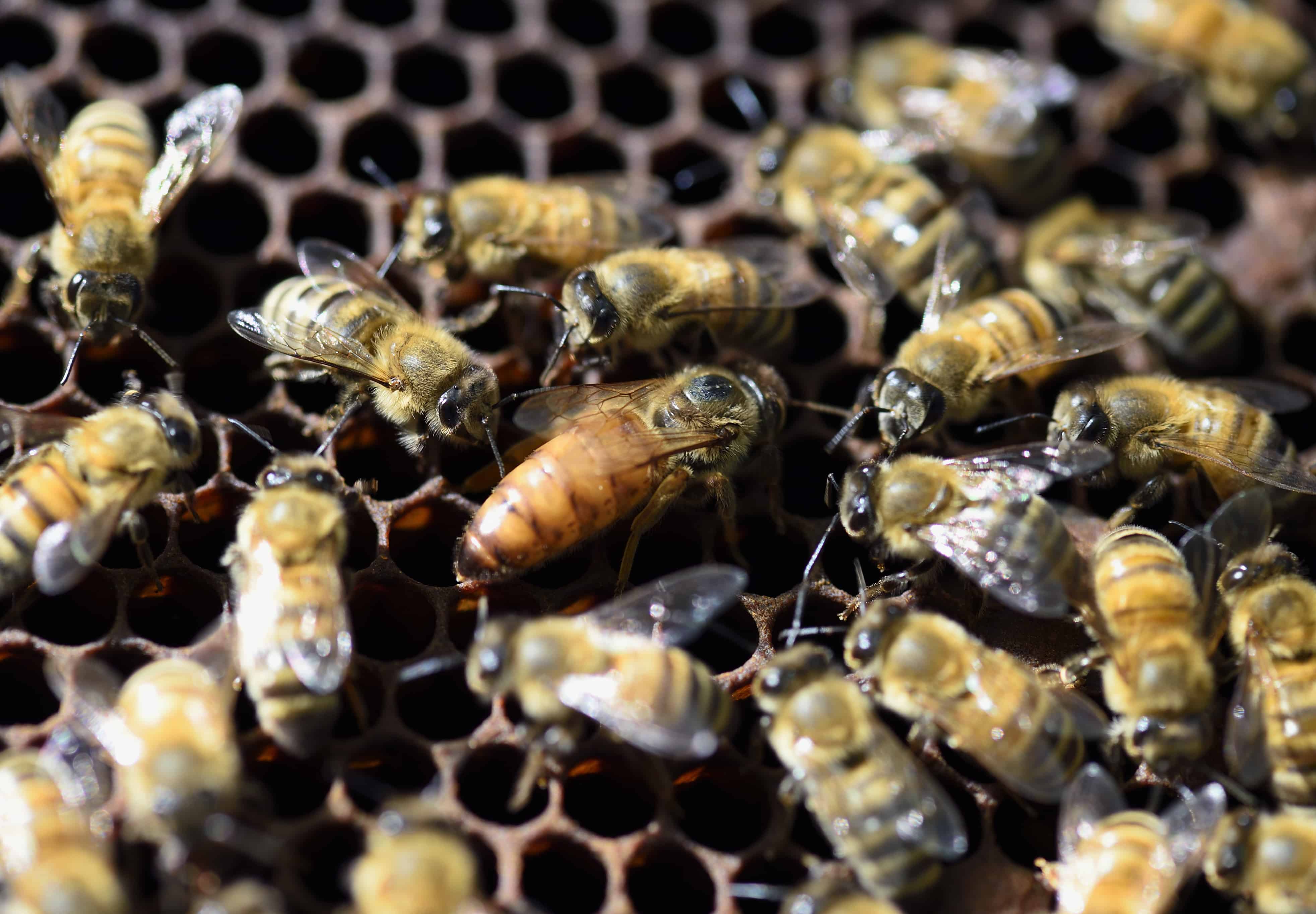Like nicotine for humans, certain pesticides seem to hold an addictive attraction for bees, which seek out tainted food even if it may be bad for them, research showed Wednesday. Not only did bees show no signs of avoiding neonicotinoid-laced food in lab tests, they seemed to prefer it, a study published in the science journal Nature found.
“We now have evidence that bees prefer to eat pesticide-contaminated foods,” study author Geraldine Wright of Newcastle University said. This suggests “that like nicotine, neonicotinoids may act like a drug to make foods containing these substances more rewarding,” she said.
Neonicotinoids are lab-synthesised pesticides based on the chemical structure of nicotine. They are widely used to treat crop seeds — designed to be absorbed by the growing plant and attack the nervous system of insect pests.
Previous research, however, has linked them to scrambling memory and navigation function in bees, affecting the little pollinators’ ability to forage. Bees have been hit in Europe, North America and elsewhere by a phenomenon called “colony collapse disorder,” which has alternatively been blamed on mites, a virus or fungus, pesticides, or a combination of factors.
Bees account for 80 percent of plant pollination by insects — a function estimated to be worth at least $153 billion a year globally. Pending clarity on the safety of neonicotinoids, a topic that is fiercely debated among scientists, environmentalists and agrochemical producers, the European Commission put a two-year restriction on their use in bee-attracting plants starting December 1, 2013.
A second study carried out by Nature on Wednesday found further evidence of risk for some bee species from neonicotinoids, which come in three types: clothianidin, imidacloprid and thiamethoxam. Scientists in Sweden sowed eight fields with clothianidin-treated canola seeds, while another eight were untreated.
“The most dramatic result that we found was that bumble bee colonies almost didn’t grow at all at the…treated sites compared to the control sites,” project coordinator Maj Rundloef of Lund University said. There were also fewer wild bees in the contaminated sites, but honeybee colonies did not appear to be affected.
Read our story about the film “Vanishing of the Bees”
Like a drug
In the other study, Wright and her team used hundreds of bumble bees and thousands of honeybees in lab experiments. They allowing the bees to feed freely from either a sucrose solution with a neonicotinoid added to floral nectar, or one without.
“Foraging-age bees of both species did not avoid any of the concentrations of any of the three neonicotinoids,” Wright said by email. “Instead, they chose to feed on tubes containing either imidacloprid or thiamethoxam,” she said. Bees did not exhibit a preference for the third type, clothianidin.
“I believe that the experiments show that these compounds have a pharmacological effect on the bee’s brain,” she said. This means that even if alternative food is provided for bees in areas where pesticides are used, a solution suggested by some, the insects may prefer to forage on the contaminated crops anyway.






